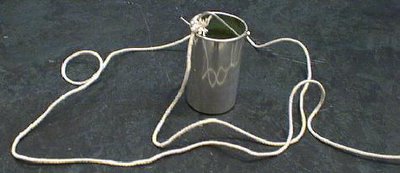Tie the Tin Can on the Wingnut

Being generally inclined to be a bit lazy, any time I see the chance to hit three targets with one post -- in this case Holy Joe, the warmongers and the WaPo (in the form of the odious editorial page editor, Fred Hiatt) -- I'm going to take it, I really can't help myself.
Armando reminds us of this Hiatt chestnut from November 14, 2005:
. . . Congress . . . pours most of its Iraq-related energy into allegations of manipulated intelligence before the war. "Those aren't irrelevant questions," says Sen. Joe Lieberman (D-Conn.). "But the more they dominate the public debate, the harder it is to sustain public support for the war."Fred is one of Elton's favorite targets over at BusyBusyBusy. Elton gives us even fonder memories of Fred:
What Lieberman doesn't say is that many Democrats would view such an outcome as an advantage. Their focus on 2002 is a way to further undercut President Bush, and Bush's war, without taking the risk of offering an alternative strategy -- to satisfy their withdraw-now constituents without being accountable for a withdraw-now position.
Many of them understand that dwindling public support could force the United States into a self-defeating position, and that defeat in Iraq would be disastrous for the United States as well as for Mahdi and his countrymen. But the taste of political blood as Bush weakens, combined with their embarrassment at having supported the war in the first place, seems to override that understanding.
The United States and this administration in particular continually assert the moral right to behave differently than other nations. We will not be bound by the International Criminal Court. We insist that other nations give up their nuclear weapons while we keep our own. We wage war without U.N. Security Council approval. We publish annual report cards on everyone else's human rights records.You would think those Iraqis would be so grateful for our our highhandedness that they'd hop to that "live freely" business already.
The premise of this highhandedness is that the United States is, on balance, a force for good in the world -- a superpower that uses its might not to subjugate others but to allow them to live freely. This is a premise that The Post's editorial page on the whole accepts -- to the dismay of many readers.
Have a tin can, Fred.


<< Home